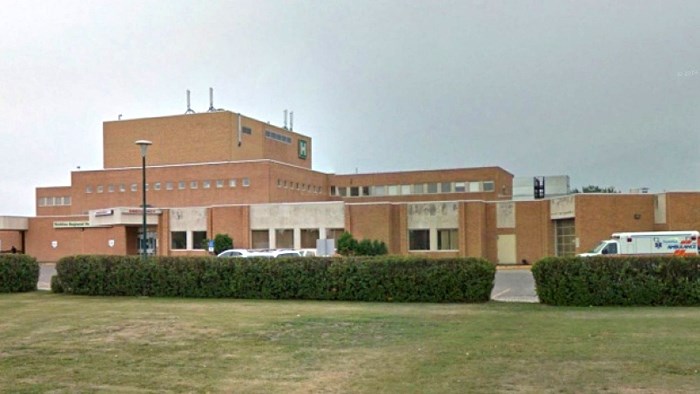The provincial budget shows a record investment in health care at $5.2-billion investment towards health.
Finance Minister Kevin Doherty announced the government will increase spending in the health portfolio by $38.6 million, representing a 0.7 per cent increase for 2017-2018, for a total of $5.2 billion for core health services and infrastructure.
But, there are still a number of cuts to funding which will impact people, but to just what extent locally is still being determined.
“We’re still looking at what this is going to mean to us,” Christina Denysek interim CEO with Sunrise Health Region said Monday, noting the budget was only delivered last Wednesday, “so we are only in day three of taking a look at what it’s going to mean to Sunrise.”
One change outlined in the budget will have many long-term care residents having to pay higher fees when the provincial budget cuts back subsidies on July 1.
As part of Wednesday’s health budget, the percentage of income paid, on top of the minimum $1,086 monthly fee, will rise from 50 per cent to 57.5 per cent, which is expected to impact about half of current residents in the province.
The maximum monthly fee will increase from $2,065 to $2,689.
“We have to feed that into our system and see what it means to us at well,” said Denysek.
People needing podiatry and hearing services locally will also be affected by Wednesday’s health budget, said Denysek.
The government’s Hearing Aid Plan will be phased out for everyone except low-income residents, eliminating the plan’s coverage of audiological evaluation and subsidized hearing aids.
Affected clients will soon have to access those services through the private system. The government says it will save $3 million by eliminating the plan, which will see the Sunrise Health Region audiology clinic close in Yorkton.
The budget will also phase out public coverage of podiatry services worth $1.2 million, low-cost orthotic services valued at $285,000 and the provision of sleep apnea devices worth $800,000.
In the case podiatry services Yorkton will also lose the Sunrise Health Region clinic located here, the only one in the entire region.
“I’m saddened by the loss of the program,” said Dr. Janet Simpson, who operated the clinic, saying she is concerned for patients, who will now have to travel to Regina to find private podiatry services.
The podiatry service started in 1984.
Simpson called it “one of the best things the province ever did.” She added the program loss is disappointing because it is a service people require from across the entire local health region.
Public coverage for chiropractic services will also be removed completely as the budget revokes coverage for the last remaining low-income recipients on July 1.
And, people needing travel vaccinations will have to turn to private pharmacies and physicians as those services are taken away from public health offices.
The Saskatchewan Medical Association (SMA) came out in a press release last week citing concerns about the marginal increases in health spending announced in the budget.
The Saskatchewan Medical Association (www.sma.sk.ca) is a voluntary, member-based, professional association for physicians, medical students and residents in the province and it is the provincial chapter of the Canadian Medical Association.
“We appreciate the fiscal challenges this government is facing, but we are concerned that the system will be strained and patient care may be negatively affected,” said Dr. Intheran Pillay, president of the SMA in the release. “In our ongoing discussions with government we have always stressed the need to proceed thoughtfully with transformation. The health system is big and complex and improvements don’t happen overnight.”
Dr. Pillay noted, in the release, that the health-care system needs to be fundamentally changed to address the challenges it faces.
“The province’s physicians have been doing their best in a system that is not designed to address chronic diseases, mental health, and frailty. The focus remains on volumes, not value. As hard as they try, individual physicians work hard and have some success, even as they struggle to surmount a dysfunctional system.”
He said solutions to these kinds of challenges exist, and they are better implemented with the full participation of physicians.
“For almost a year now the SMA has engaged in a continuous and robust discussion about the role of and relationships with physicians in an integrated health system, which we have coined as ‘health system redesign,’ ” Dr. Pillay said. “We know the province’s physicians are interested in building a better, more integrated system that is better able to address citizens’ needs while making the practise of medicine more effective. However, I am concerned that in a climate of significant cost reduction, our members will be preoccupied with shortages and rapid changes, and won’t have the energy or the motivation to pursue the longer-term strategy of health system redesign. In a recent survey more than half said they are at risk of burnout. I can’t help but think the implications of this budget might exacerbate this worrisome phenomena.”
Dr. Pillay said he remains committed to continuing the SMA’s work with Ministry of Health officials on the amalgamation of health regions, and with managing the effects of the budget. He believes a longer-term solution will guard against poorer access and poorer quality patient care, and ensure a more sustainable, better integrated and stable healthcare system into the future.



